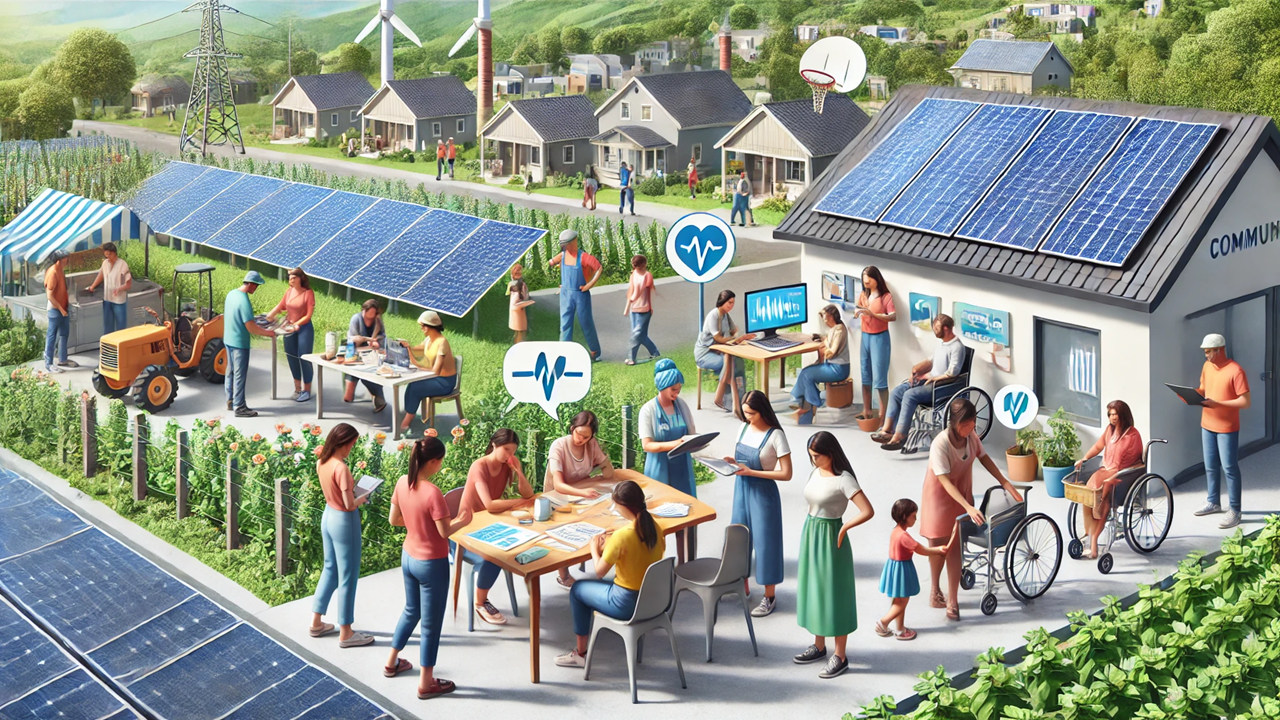Empowering Women Worldwide: UNDP's Unstoppable Drive for Gender Equality
The United Nations Development Programme (UNDP) released its Annual Report on the Gender Equality Strategy 2022-2025, detailing significant progress in empowering women worldwide despite global challenges. Key highlights include advancements in poverty alleviation, governance, resilience, environmental protection, and clean energy access. This article explores the transformative efforts and partnerships driving gender equality forward.

In a year marked by global upheaval, the UNDP made significant strides in advancing gender equality. The Annual Report of the Gender Equality Strategy 2022-2025 reveals a determined effort to empower women and girls worldwide. Despite political instability, climate crises, and conflicts, the UNDP's initiatives reached millions, providing essential services, financial access, jobs, and clean energy.
Achim Steiner, UNDP Administrator, emphasized the critical role of gender equality in achieving a sustainable and inclusive world. He noted that investing in gender equality is not just a moral imperative but a strategic necessity for global development.
Empowering Women in Crisis and Beyond
One of the standout achievements was the UNDP's support for nearly five million women in crisis settings. These efforts included providing jobs and livelihood opportunities, which are crucial for survival and resilience in unstable environments. In countries like Burundi, over 200,000 women accessed microcredit and financial skills training, along with land certificates recognizing their ownership rights. This initiative helped break longstanding cultural barriers and provided women with the tools to build better futures.
The Gender and Crisis Facility continued to support economic recovery programs in Afghanistan, Haiti, and Ukraine, extending life-saving jobs and services to women in dire situations. In Sierra Leone, UNDP's aid to the Ministry of Gender, Child, and Social Welfare led to the drafting of an Affirmative Action Bill on peacebuilding, set for parliamentary approval in 2024.
Pioneering Gender-Responsive Policies
The UNDP's flagship EQUANOMICS program made significant headway by promoting gender-responsive fiscal policies. This initiative supports governments in identifying and correcting gender biases in tax and expenditure policies. For instance, in Mongolia, the UNDP collaborated with the General Tax Authority to enhance the capacities of officers to detect and address gender biases in core taxes. This collaboration is steering reforms that place gender equality at the center of public finance.
Moreover, the UNDP backed the development of comprehensive care systems in countries like Peru and the Dominican Republic, expanding early childhood care coverage and national care policies. These efforts ensure that social protections reach a broader number of women and marginalized populations, fostering an inclusive economic environment.
Clean Energy: A Path to Economic Empowerment
Access to clean energy is pivotal for reducing women's time poverty and increasing their economic opportunities. The UNDP facilitated clean energy access for 14 million women in 37 countries. Initiatives like the Enhanced Rural Resilience in Yemen (ERRY) Joint Programme empowered women through solar microenterprises, allowing them to generate income and sustain their communities amidst crises.
The UNDP's active portfolio of clean cooking projects, funded by the Global Environment Facility (GEF) and Green Climate Fund, spans 75 countries with grants totaling $350 million. These projects not only reduce deforestation and pollution but also alleviate the time burden on women, enabling them to engage in economic activities.
Building Partnerships for Lasting Impact
The success of the UNDP's gender equality initiatives is largely due to its robust partnerships. Collaborations with private sector companies, civil society organizations, and other UN agencies have been instrumental in driving progress. The Gender Equality Seal for the Private Sector engaged 189 companies, benefiting over 450,000 workers, nearly half of whom are women. This initiative promotes inclusive workplaces, equal pay, and women's leadership and participation.
Furthermore, the UNDP's support for the LGBTIQ+ community in 13 countries underscores its commitment to addressing intersectional discrimination. By fostering inclusive environments and ensuring access to services and rights, the UNDP is helping to create a more equitable world for all.
Looking Ahead: Deepening Commitments
As the UNDP moves forward with the Gender Equality Strategy 2022-2025, it aims to deepen its efforts in social protection, women's civil rights, and transforming societal norms. The organization plans to continue leveraging its strategy to guide actions and generate meaningful change, pushing beyond comfort zones to create an enabling environment for gender equality.
- FIRST PUBLISHED IN:
- Devdiscourse
ALSO READ
Norway Contributes USD 40 Million to UNDP Core Resources for 2024
UNDP and Sitra Forge Partnership to Advance Circular Economy Goals Globally
A Global Effort: UNDP and UNHCR Unite to Tackle Forced Displacement
UNDP Applauds Namibia High Court’s Landmark Ruling on LGBTQI+ Laws
UNDP Accelerator Labs Network Hosts Event on Social Innovation for Sustainable Development










